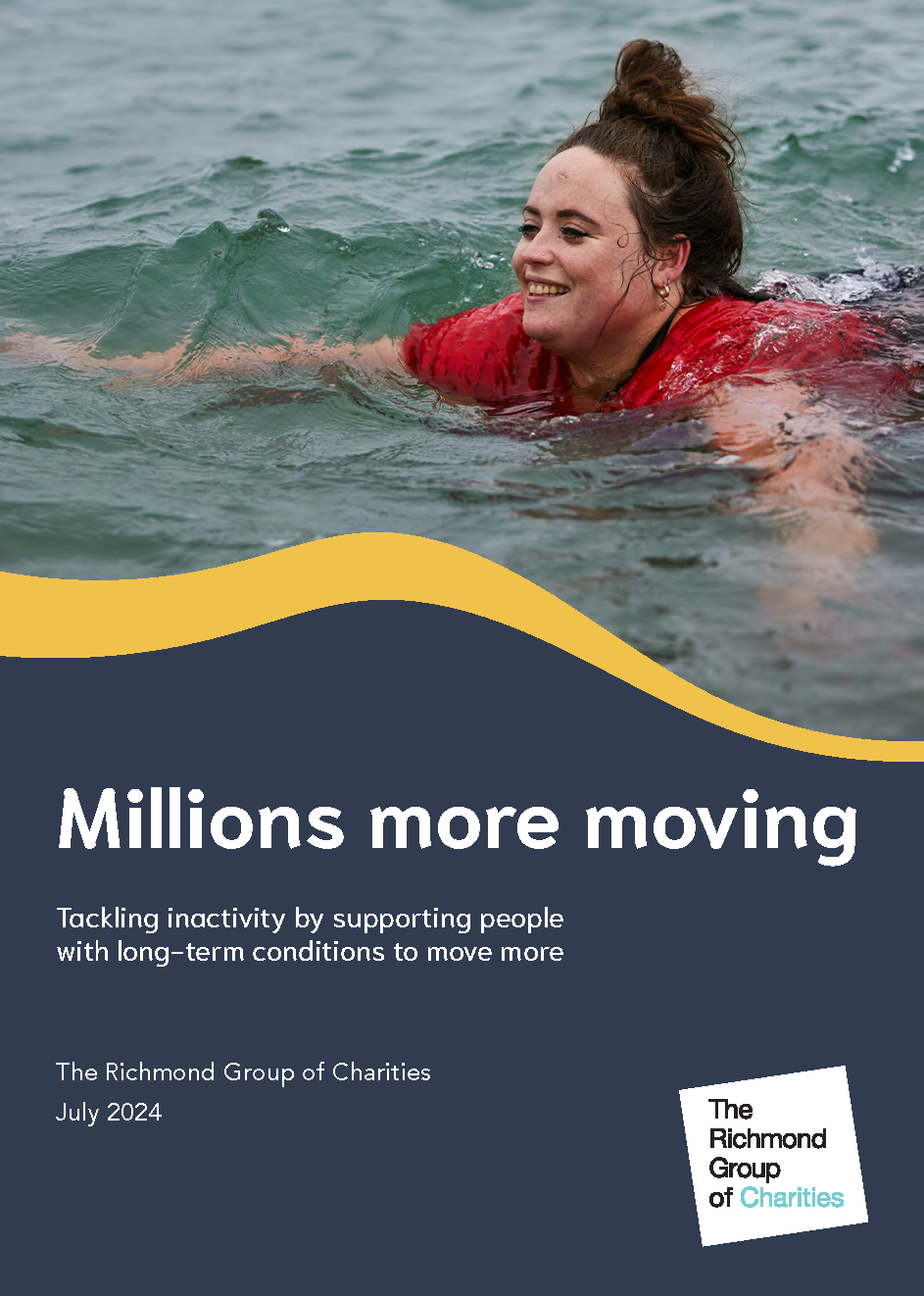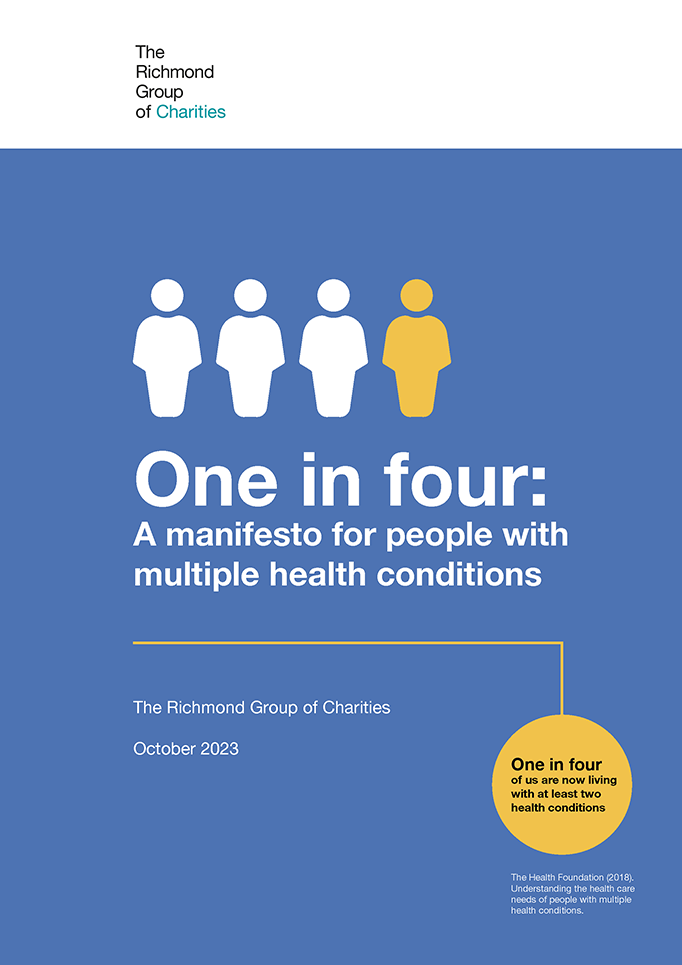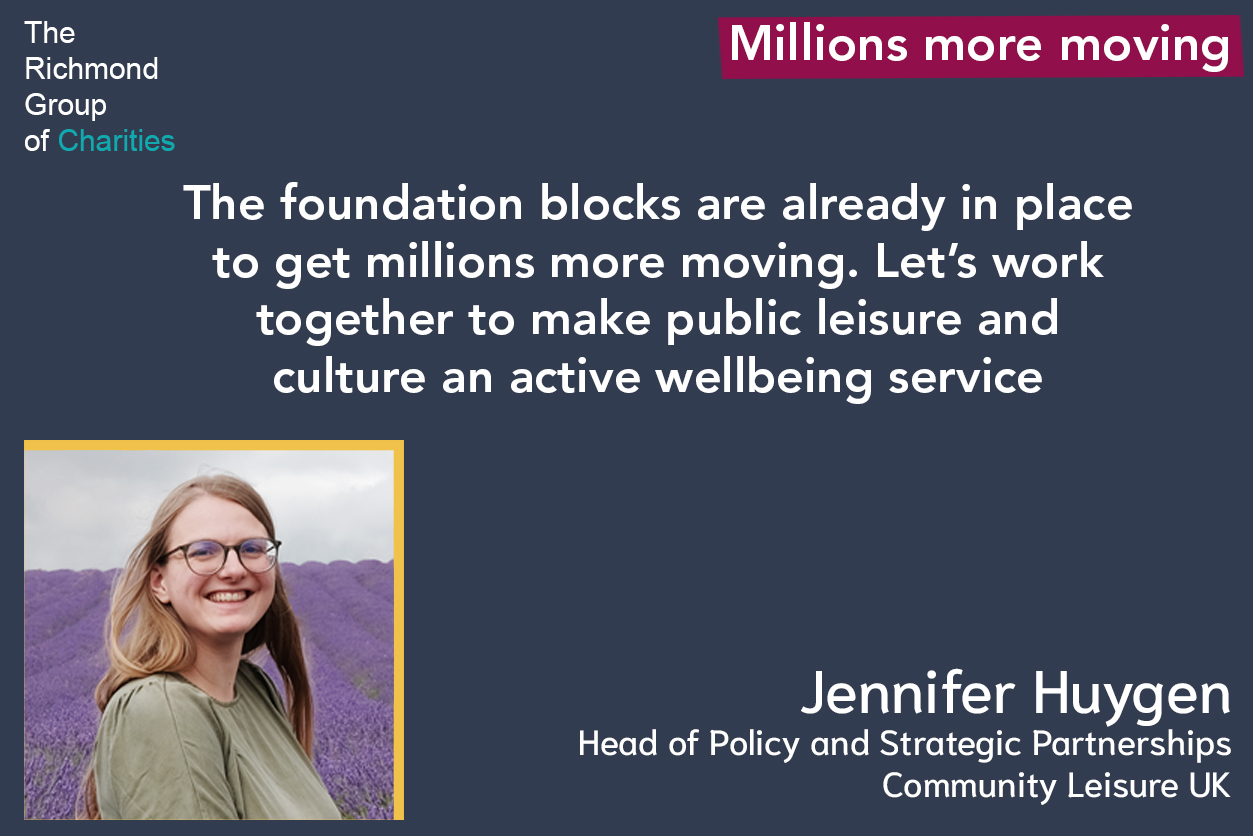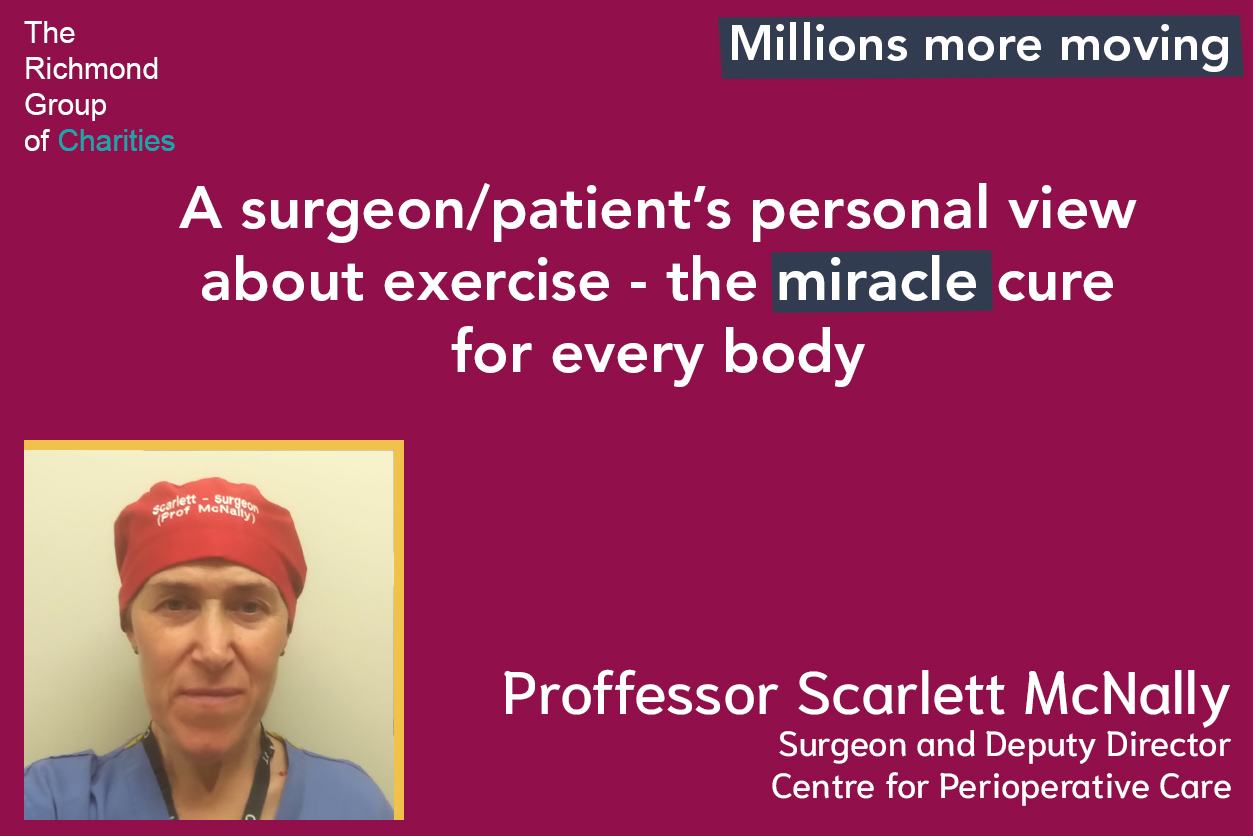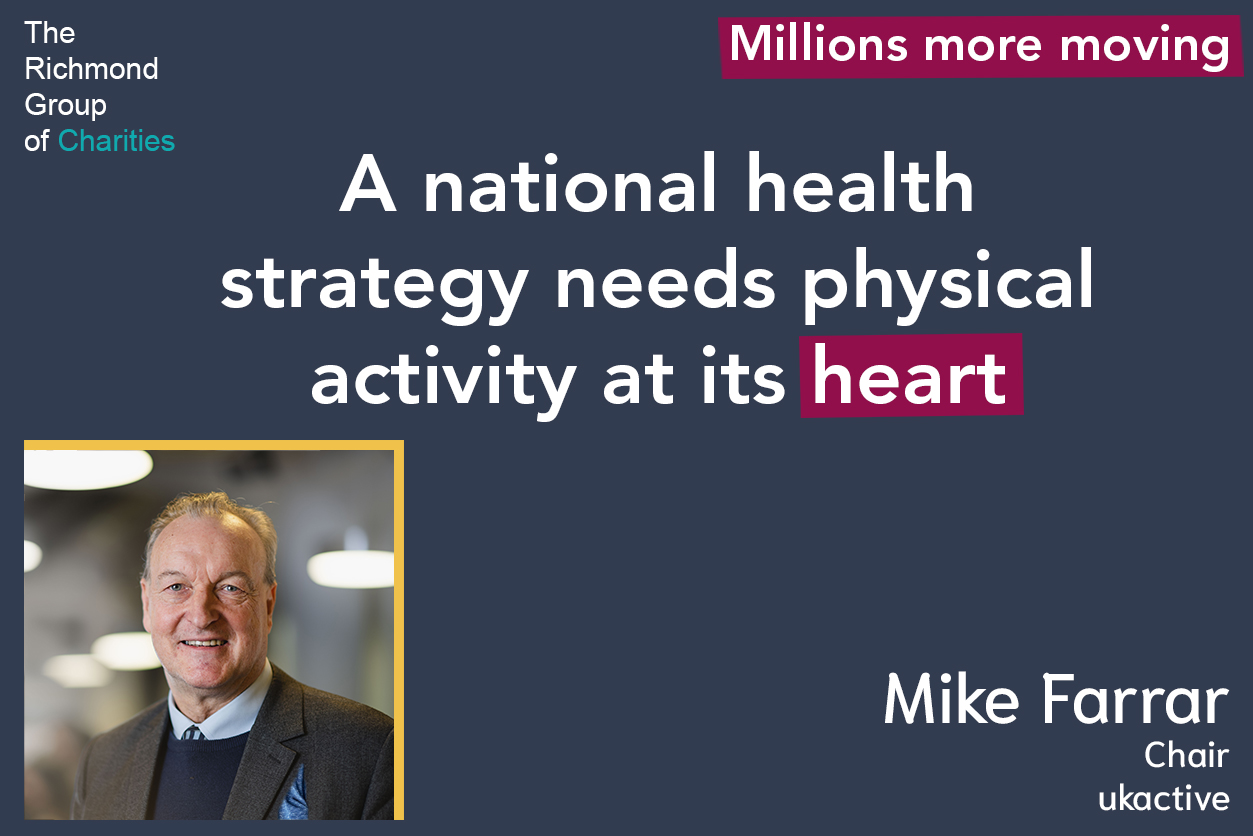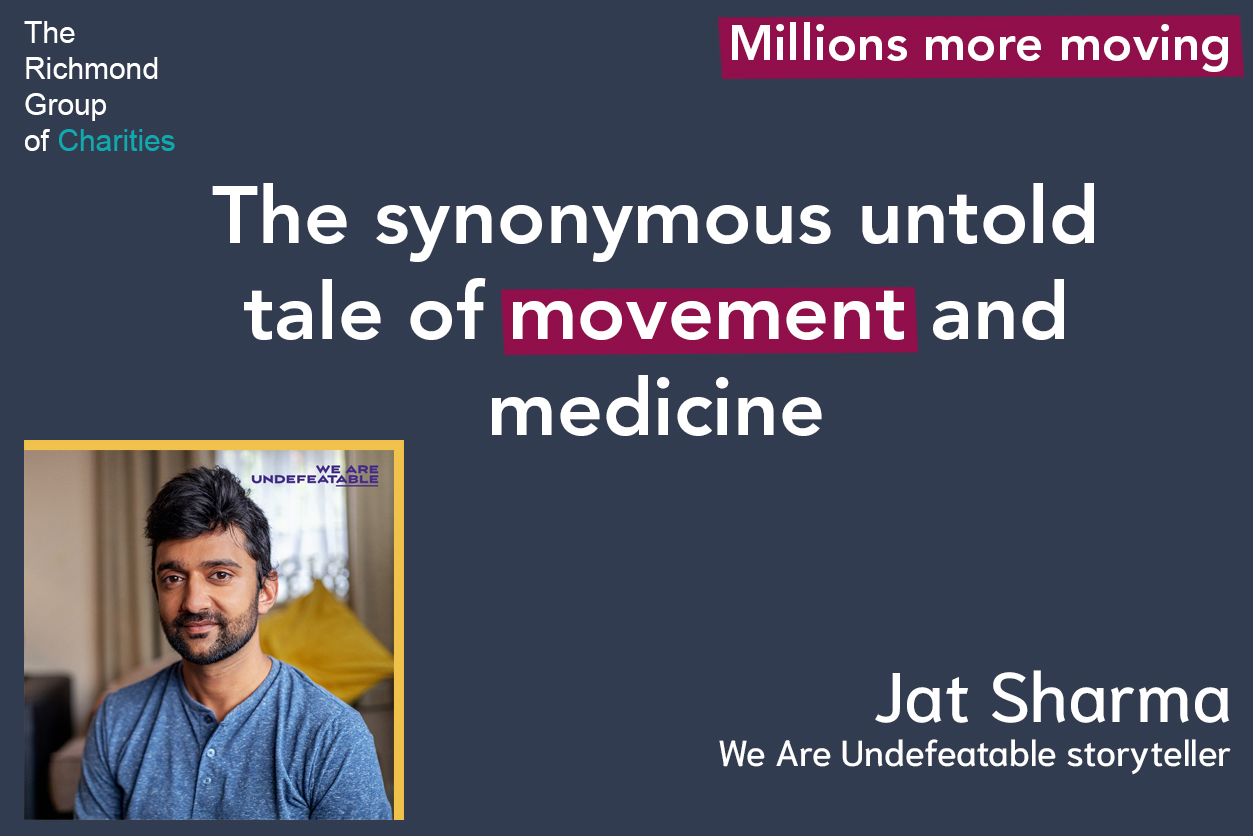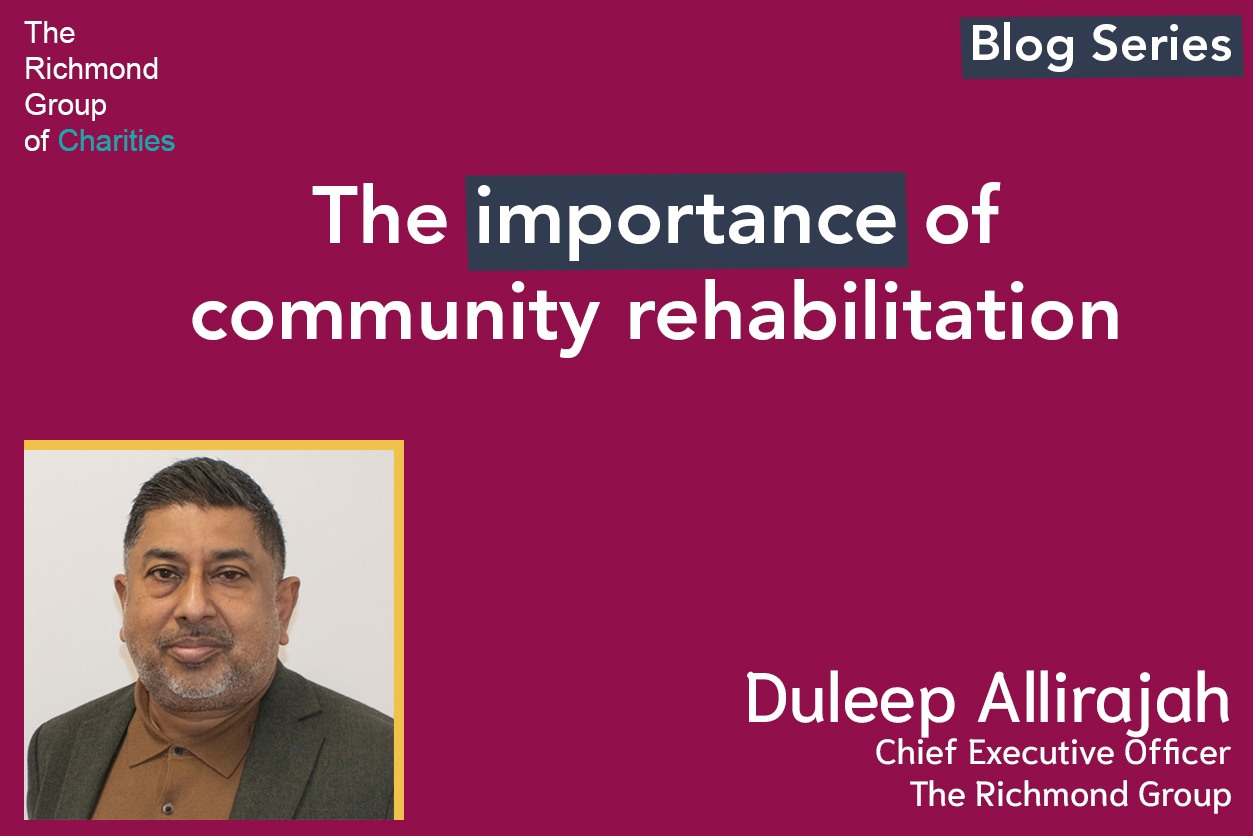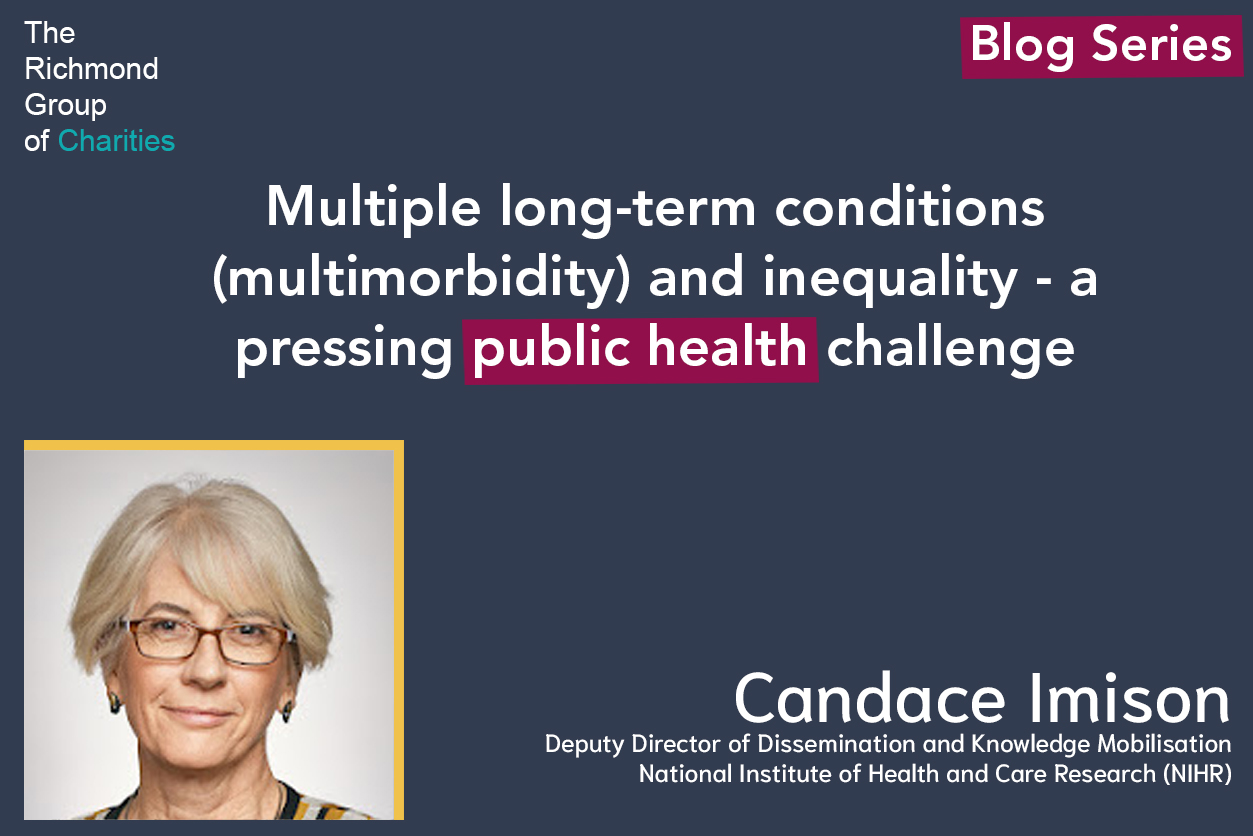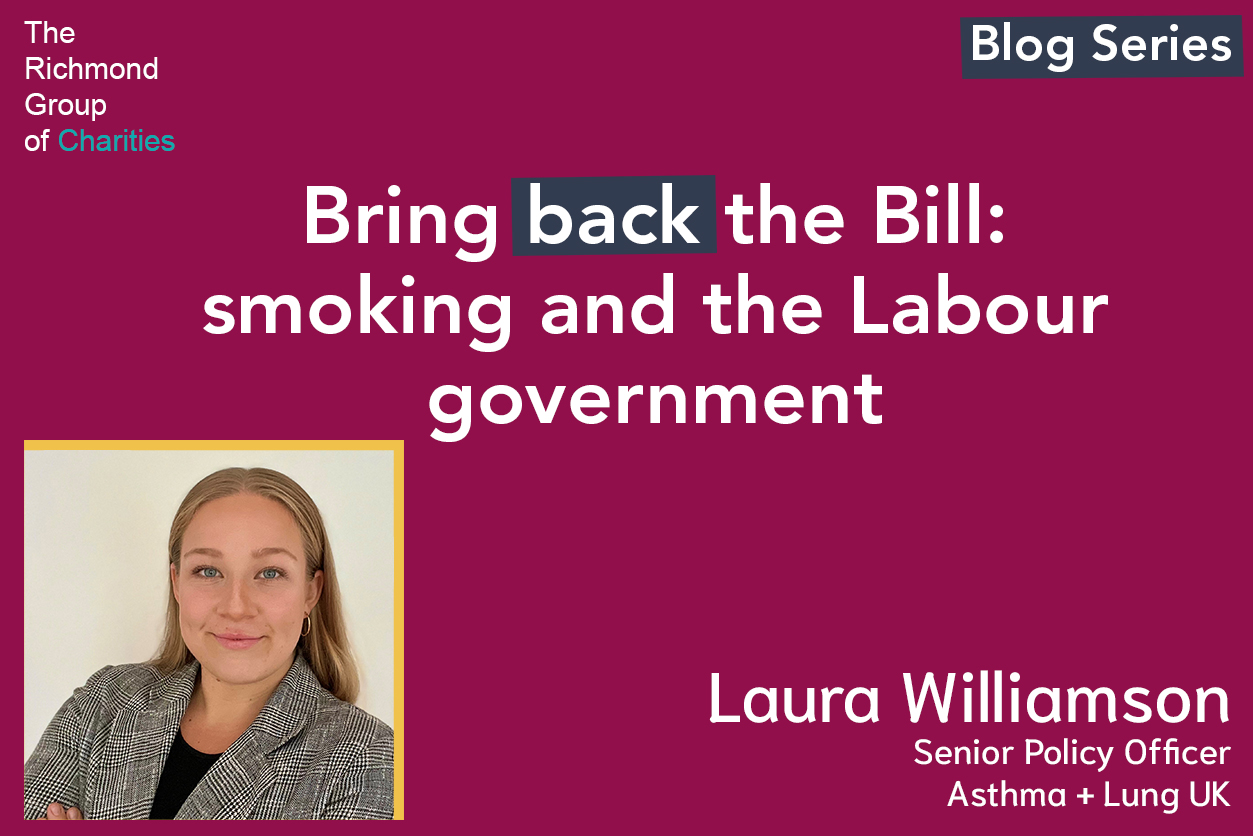Featured posts
One in four: A manifesto for people with multiple health conditions
Publication
Health and Care
Read Publication
Filter by subject
Richmond Group hosts parliamentary drop-in on movement and long-term conditions.
Blog
Health Systems
Multiple Long-Term Conditions
Physical Activity
Read More
What can the 10-Year Health Plan change to improve care for people with multiple conditions?
Blog
Health and Care
Health Systems
Multiple Long-Term Conditions
Read More
The foundation blocks are already in place to get millions more moving. Let’s work together to make public leisure and culture an active wellbeing service
Blog
Physical Activity
Read More
A surgeon/patient’s personal view about exercise – the miracle cure for every body
Blog
Physical Activity
Read More
Millions more moving
The Richmond Group of Charities has published Millions more moving, a report informed by lived…
Publication
Health Systems
Physical Activity
Read More
Multiple long-term conditions (multimorbidity) and inequality – a pressing public health challenge
Blog
Health Systems
Multiple Long-Term Conditions
Read More
Bring back the Bill: smoking and the Labour government
Blog
Health and Care
Health Systems
Read More
